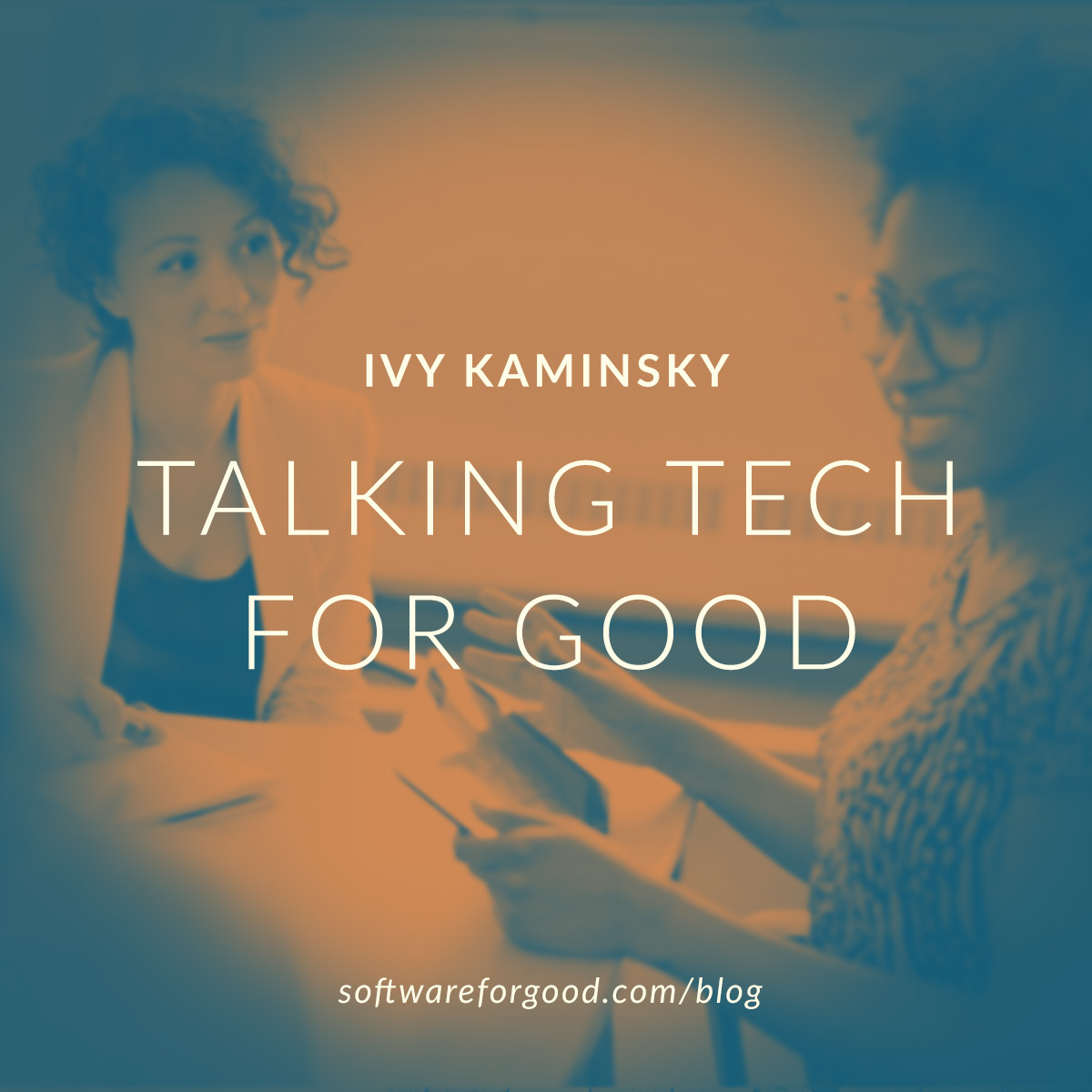At Software for Good, we help people across sectors use technology to simplify complex processes, communicate important information, and help people be more effective in their work for social and environmental impact.
In Talking Tech for Good, we talk to people who use technology for positive change every day.
Ivy Kaminsky
Founder and CEO, Find Your Power
 How do you use and/or build technology in your work?
How do you use and/or build technology in your work?
Our whole reason for being is because we believe that information access plus digital literacy is one great way towards gender equity. We are currently doing needs-based assessments with local African immigrant women to learn what type of resources they need, how they currently access resources, and what barriers they face to accessing those resources; i.e. skills, hardware, and/or internet service. We will take what we learn and build a resource library/tech tool.
How does your work pursue or support social good?
Our work directly supports the UN Sustainable Development Goal #5: Achieve gender equality and empower all women and girls. Specifically by enhancing the use of enabling technology, in particular information and communications technology, to promote the employment and training of women.
How do you define “tech for good”? What makes tech “good”?
Using technology to improve the outcomes of people’s lives, especially those that typically lack access.
What interests you about the potential to use technology for change? What people or organizations do you see doing this successfully?
I believe the potential to use technology for change is only as limited as where people can get internet access, which won’t be limited for long with advances in technology.
What ethical concerns do you have in your work? What ethical principles do you want to see adopted more widely when it comes to tech and/or the work of social good?
In the tech world, as well as the work of social good, we want to see the principles of equity and unconditional accessibility reflected in both. Internet privacy and net neutrality are valuable in ensuring protection and equity, and the accessibility to allow individuals to expand themselves through technology.
Can you describe a time when you witnessed the positive social impact of technology, either through something you built or through tech that made your work easier?
One of our favorite and cost-effective tools that we use is something called Qgiv, which is a fundraising platform that starts with a free online version, and allows us to accept donations, and sell event tickets or merchandise without fees.
What do you wish more people knew about tech, work for social change, or both?
Much of the developing world lacks the access to technology and the internet that we often take for granted, and this lack of access disproportionately affects women and girls.
What would be your dream technology aimed at solving a problem in society?
We’re building it, so stay tuned.

